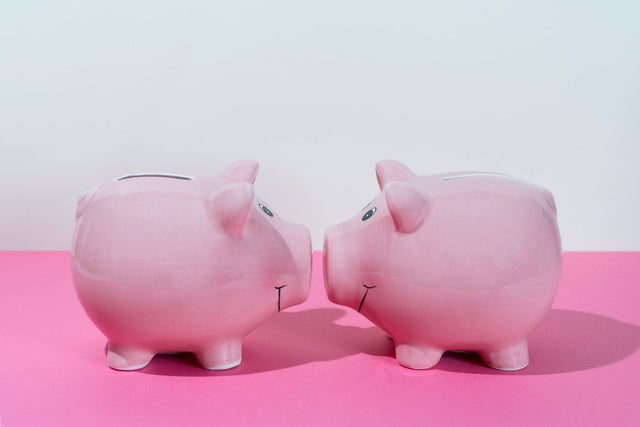$100,000 CD vs. $100,000 high-yield savings account: Which earns more interest now?
If you have a six-figure amount of money saved to the side and are looking for ways to both protect it and grow it over time, you may be considering investing it in stocks and bonds. The stock market, after all, comes with returns over time that many economists recommend pursuing, even in unpredictable economic conditions. But stock market uncertainty can also be difficult to stomach, especially after the inflationary period millions of Americans have endured in recent years. And inflation has been inconsistent in recent months, too, giving savers additional reasons for concern.
Understanding this dynamic, then, many may instead be tempted to deposit $100,000 or more into a conventional savings vehicle. Two ones worth considering now are certificates of deposit (CD) and high-yield savings accounts. Both come with interest rates exponentially higher than what's available with traditional savings accounts. And both offer savers a somewhat predictable way to earn more on their money. That said, they don't operate in identical ways, either. And the interest-earning potential of both will, in turn, vary.
Between a $100,000 CD and $100,000 high-yield savings account, then, which could earn more interest right now? That's what we'll break down below.
Start by seeing how much more you could be earning with a high-rate CD here.
$100,000 CD vs. $100,000 high-yield savings account: Which earns more interest now?
Calculating the interest that can be earned with a CD is simple to complete, thanks to a fixed interest rate that will remain the same throughout the full CD term, even if rates cool during that period. But it's difficult to do with a high-yield savings account, which has a variable rate that can and likely will change over time, especially if rate cuts are reissued again in the months to come.
Here, then, is what each could earn with an initial $100,000 deposit, assuming the high-yield savings account rate remains constant and that the CD account isn't hit with an early withdrawal fee:
- $100,000 3-month CD at 4.30%: $1,058.09
- $100,000 high-yield savings account at 4.35% after three months: $1,070.20
- Difference between accounts: The high-yield savings account earns $12.11 more.
- $100,000 6-month CD at 4.45%: $2,200.78
- $100,000 high-yield savings account at 4.35% after six months: $2,151.85
- Difference between accounts: The CD account earns $48.93 more.
- $100,000 9-month CD at 4.30%: $3,207.97
- $100,000 high-yield savings account at 4.35% after nine months: $3,245.07
- Difference between accounts: The high-yield savings account earns $37.10 more.
- $100,000 1-year CD at 4.40%: $4,400.00
- $100,000 high-yield savings account at 4.35% after one year: $4,350.00
- Difference between accounts: The CD account earns $50.00 more.
Using these four examples, the interest earnings will change depending on the length of time. In some instances, a CD will earn more, but in others, a high-yield savings account will. That said, the CD earnings will be guaranteed while the high-yield savings account won't. So that volatility will need to be priced in. For many, the interest they can earn with a CD may be worth it, even if a high-yield savings account, in theory, may be able to earn slightly more.
Compare your CD account options here to learn more.
The bottom line
CDs and high-yield savings accounts may feel like unconventional homes for a six-figure amount of money. And they often are. But for savers who want to protect their principal, earn today's high rates while they're still readily available and not have to worry about any market volatility that could impact their money, they offer viable paths forward. Just be sure to calculate your interest-earning potential closely and, if you choose a CD, make sure to only deposit an amount that you can part with for the full CD term, as an early withdrawal penalty on a five or six-figure sum of money could be expensive.
